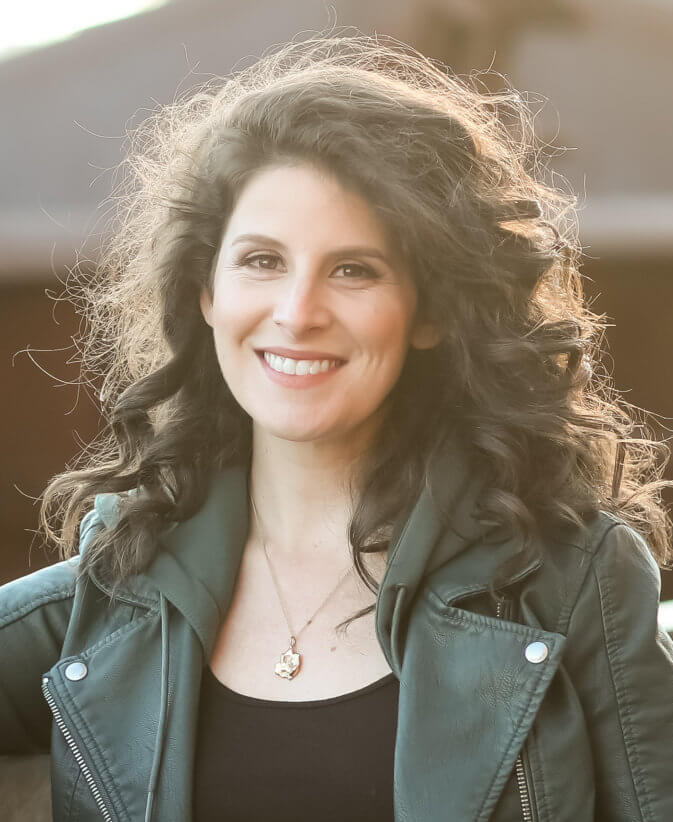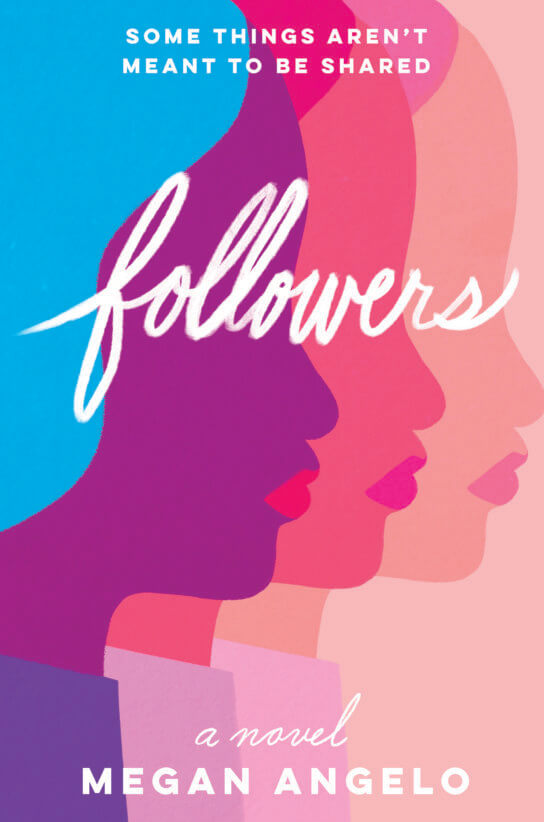
New York Family’s Parent’s Book Club Pick for March is Megan Angelo’s Followers. Angelo tells the story of a budding novelist who meets a wannabe A-lister, and the two women plan to launch themselves into the high-profile lives they dream about. Thirty-five years later, in a world where government-appointed celebrities live every moment of the day on camera, another woman dreams of fleeing the corporate sponsors who would do anything to keep her on-screen. Angelo reminds us that even if we obsess over famous people we’ll never meet, what we really crave is genuine human connection.
Megan Angelo’s writing has appeared in publications like the New York Times (where she helped launch city comedy coverage), Glamour (where she was a contributing editor and wrote a column on women and television) and Elle (where she has written about everything from Lauren Conrad’s Instagram to NRA TV). She lives in Pennsylvania with her husband and three kids. FOLLOWERS is her first novel. Learn more: meganangelo.com
Are you caught up with our book club reads? Check out last month’s pick: The Other’s Gold by Elizabeth Ames!

Before the prologue begins, you introduce readers to two quotes: one by Friedrich Nietzsche and the other by Kylie Jenner. Why did you choose these quotes to frame Followers before diving into Marlow and Orla’s stories?
I really chose them for the contrast, because I knew it would give the reader a good heads-up on what’s to come — sometimes you’ll think this book is light and then it’ll suddenly turn dark, other times you’ll think it’s so dark and then, suddenly — hopefully — you’ll be laughing. I came across that Nietzsche quote while trying to find stuff people had written about fame in earlier parts of history, but I had the Kylie quote long before that and knew I wanted to use it. It’s this sentiment you wouldn’t look twice at in its original context. But here, “and I don’t even realize what I’m capable of” feels sinister.
Followers jumps back and forth between the present day and a futuristic world, set in 2051. What led you to the genre of speculative fiction? Did you ever consider writing this story solely in the present day?
I didn’t consider that. It was always 2015 and 2051, but not necessarily because I was so excited to give speculative fiction a shot. It was more like I wanted to write the story as a historical novel in reverse. I love books that span decades and hinge on the connections between characters throughout time, and I knew that FOLLOWERS was that kind of story. Social media and tech and the future of fame — all those speculative elements came in because of the paths these women took, and because I had to fill in the world around them.
“Did she ever think that maybe they’d all be better off off-line? Without any internet, period? The way people were in the 1900s?” (265): I’m curious to hear your response to these questions that you pose in Followers. Would our society be better without the internet, or would we miss out on something really special that social media and the internet provides?
Allow me to be annoyingly evasive: I think it’s both. Truly, though. I’ll tell you what, I’m in the thick of promoting a book, and so I’ve never been more disgusting with my phone. I think I’m probably clocking four hours cumulatively a day right now, hundreds of pickups, probably. I feel it in my hands and my neck but more than that, it’s like my attention span is drunk. The impact is instant. The more I respond to dings, the less I can concentrate over them. So that’s just me, but I get kind of disgusted with myself when I’m in a bad period of digital binging like this. I think I feel like my phone has changed my personality, and I don’t like that. At the same time, because I focus so much on this aspect of the use, I take for granted all the best stuff about social media. I love how close the Internet keeps me to my friends and family and all the serendipitous interactions it sets up. I love how it can make you feel less alone in an idea. So: I’d miss it if it went, but I can’t stand it while it’s here.
After writing this novel and having three kids of your own, what advice do you have for parents about raising kids in this internet-obsessed, social media-crazed world that we live in? Do parents have an obligation to limit their kids’ time online? How can parents monitor their kids’ social media accounts?
Well, my kids are little — five, three and eleven months — so my chief strategy is to hope social media isn’t cool by the time they’re teenagers. I’m conscious about screen time, but I do let them have it — if I’m being honest, this book would not have gotten written without Storybots and Odd Squad. Right now, the most important thing for me is trying to model good behavior and not let them see me obsessing over my phone. I try not to be on it a lot in front of them, and if I am on it and they start talking to me, I put it down. I make a point of leaving it across the room or in other rooms.
I’m really interested in the title of the novel: Followers. Marlow thinks: “It was their fault, too, as followers — they had gotten addicted to watching” (264). I wonder if the title intentionally places emphasis on those consuming social media and our celebrity culture to suggest that we, as followers, have a role and a voice in preventing this hypothetical 2051 world. How did you decide on the title, and what significance does it have to the novel?
That’s a really interesting take. I didn’t think of it exactly like that, but I think this speaks to the best thing the title does: just isolates the word, reminds us to think about it all on its own and decide what it means to us. The book was originally called Cursive, and it was in a Catapult seminar with Rufi Thorpe that I floated the title Followers and everyone was like — yeah, that’s it. My favorite thing about the word is that we don’t think anything of wearing that label now — I’m a follower of so many people and things on social media — but when we were kids, it was a buzzword for all the things you shouldn’t be.
I absolutely love the cover of Followers. In your opinion, what is the role of a book cover, and how does your book cover relate to the story?
Oh, thank you so much. I love it, too. All the credit goes to the artist who conceived the cover, Jovanna Tosello, and Erin Craig, who’s a creative director at Harlequin. I can’t believe how many layers of the story Jovanna manages to convey in this image — for starters, it’s three women, and the book is about three women, but there are other nods to the story I won’t spoil. I also just love that the women seem like the ultimate followers — they’re sort of fading copies of each other. Also, in my heart, I believe they’re wearing Fenty lipsticks, which for a book set in the age of social media feels thematically perfect.
Rumor has it, you’re working on another novel (which we’re super excited about!). Can you tell us a little more about this book?
I’m working on two books, right now, actually, and I’m not sure if they’ll both survive or one will eat the other or what. One is about three moms who go to the same barre studio who are recruited into this sort of underground force, and the other is about two high school friends whose lives are rocked when someone they thought was a fake person on AOL IM in 1999 suddenly appears in their lives, now that they’re thirty-five.
But I feel like I can say this here: my progress is so erratic, as my kids’ primary caretaker, because life is so unpredictable, and I have struggled to be okay with that. I almost cried when my five-year-old told me he wanted to stay home sick this week on the only real day I had to write. At the same time, my kids have made me more efficient — I can focus like a laser once I get that block of quiet time — and they help me keep perspective on the ups and downs of the publishing process. And by “help me keep perspective” I mean: ask for snacks so frequently I am physically unable to check Goodreads.













